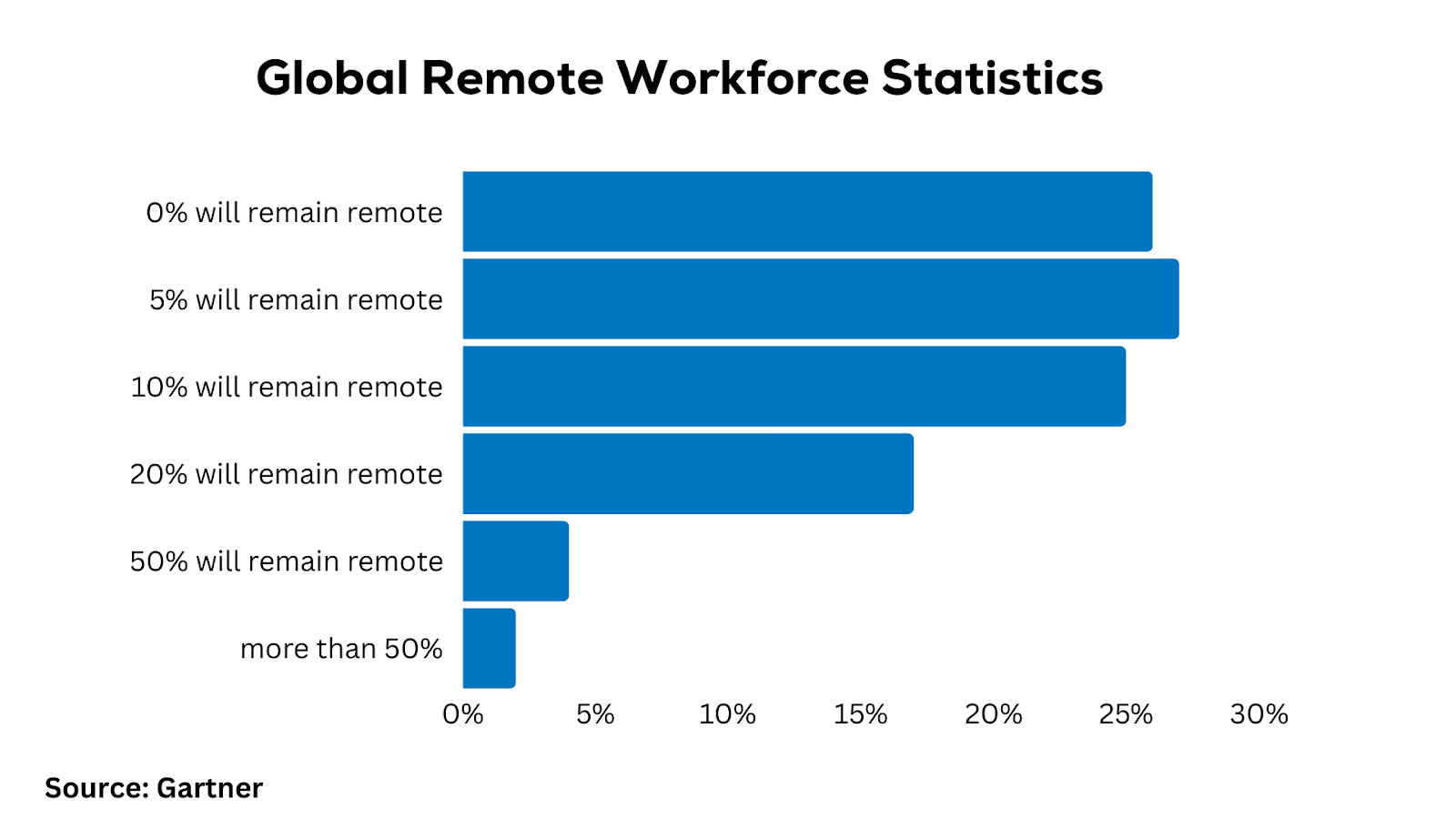In today’s digital age, the landscape of business operations has undergone a dramatic transformation. With 70% of employees now working remotely at least part-time, it’s clear that the traditional office setup is no longer the only path to success. This shift has paved the way for a critical role in modern business: the remote administrative assistant.
What is a Remote Administrative Assistant?
A remote administrative assistant, also known as a remote assistant or online personal assistant, is a professional who provides various administrative services to businesses or entrepreneurs from a remote location. Unlike traditional in-office administrative assistants, remote assistants work from their own home offices or co-working spaces, using technology to communicate and collaborate with their clients.
Why Do Businesses Need a Remote Assistant?
In today’s business environment, the need for efficient, flexible, and cost-effective support is greater than ever. Remote administrative assistants have emerged as a crucial solution for businesses of all sizes.
Let’s explore the key reasons why incorporating a remote administrative assistant into your business strategy is not just beneficial, but often essential.
Time Management and Focus
One of the primary reasons businesses turn to remote assistants is to reclaim valuable time. According to a survey, business owners and entrepreneurs spend up to 40% of their workday on tasks that don’t directly generate income. Remote assistants can take over these tasks, allowing you to:
- Focus on core business activities.
- Dedicate more time to strategic planning…
- Engage more effectively with clients and partners..
Cost-Effective Scaling
As businesses grow, so do their administrative needs. Remote assistants offer a scalable solution that grows with your business:
- No need for additional office space..
- Flexible hours to match workload fluctuations.
- Pay only for the time and services you need.
This flexibility is particularly valuable for small businesses and startups looking to optimize their resources.
Access to Specialized Skills
Remote assistants often come with a diverse skill set that can be tapped into as needed. Whether it’s social media management, bookkeeping, or customer service, you can find assistants with specialized skills to complement your team’s capabilities.
Improved Customer Service
In an era where customer experience is paramount, remote assistants can help ensure that your clients receive prompt and professional attention. They can:
- Handle customer inquiries.
- Manage appointment scheduling.
- Provide after-hours support.
This level of service can significantly enhance customer satisfaction and loyalty.
Operational Continuity
Remote assistants can provide a layer of operational resilience:
- Cover for staff absences or vacations.
- Manage tasks across different time zones.
- Ensure business processes continue smoothly during peak periods or emergencies..
Technology Integration
Many remote assistants are well-versed in the latest productivity and communication tools. This expertise can help your business:
- Simplify processes..
- Implement new technologies more efficiently.
- Stay current with digital trends.
Focus on Growth
By delegating time-consuming tasks to a remote assistant, business owners, and key team members can dedicate more energy to activities that drive growth:
- Business development.
- Strategic partnerships..
- Product innovation.
A study by Salesforce found that 41% of small business owners cite “not enough time” as a major growth challenge. Remote assistants directly address this issue, freeing up crucial hours for growth-focused activities.
In essence, remote assistants have become indispensable for businesses looking to optimize operations, reduce costs, and focus on core competencies. As we navigate an increasingly digital and global business landscape, the role of remote assistants in supporting and driving business success is set to become even more prominent.
The Economic Advantage of Remote Support
The financial benefits that make remote administrative assistants a smart choice for businesses of all sizes. The numbers speak for themselves: companies can save an average of $11,000 annually per remote worker, and integrating remote admin assistants can lead to savings of up to 70% in staffing costs. The cost of hiring a remote administrative assistant can be as low as $25,000 annually, compared to $50,000 or more for an in-house employee.

These savings stem from reduced overhead costs associated with office space, equipment, and utilities. By adopting remote administrative support, businesses can allocate resources more efficiently, investing in growth rather than unnecessary expenses.
Essential Duties and Responsibilities of Remote Assistants
Email Management remote assistants often handle email correspondence, sorting through messages, responding to routine inquiries, and flagging important emails for their employer’s attention. This helps keep inboxes organized and ensures timely responses to clients and partners.
1. Calendar Management: Scheduling appointments, coordinating meetings, and managing the employer’s calendar are crucial tasks. VAs ensure efficient time management by organizing daily, weekly, and monthly schedules, and handling travel arrangements when necessary.
2. Data Entry and Database Management: Maintaining accurate records is vital for any business. Remote assistants often input data into various systems, update customer information, and manage databases to keep information current and easily accessible.
3. Document Preparation and Management: Creating, editing, and formatting documents, presentations, and spreadsheets are common responsibilities. VAs may also be tasked with organizing digital files and maintaining a coherent filing system.
4. Social Media Management: Many remote assistants handle social media accounts, creating and scheduling posts, responding to comments, and monitoring engagement. This helps maintain a consistent online presence for the business.
5. Customer Service: VAs often serve as the first point of contact for customer inquiries. They may handle phone calls, respond to emails, or manage chat support, ensuring customers receive prompt and professional assistance.
6. Research and Reporting: Conducting online research on various topics, compiling information, and preparing reports are valuable services provided by remote assistants. This can include market research, competitor analysis, or gathering data for decision-making.
7. Bookkeeping and Invoice Management: Basic financial tasks such as tracking expenses, preparing invoices, and managing accounts payable and receivable are often handled by remote assistants with relevant skills.
8. Travel Arrangements: For businesses that require frequent travel, VAs can research and book flights, hotels, and transportation, as well as prepare itineraries and necessary travel documents.
9. Project Management Support: Remote assistants may assist in coordinating projects, tracking deadlines, and ensuring team members have the necessary resources and information to complete tasks efficiently.
10. Technology and Software Management: VAs often assist with managing software subscriptions, troubleshooting basic tech issues, and researching new tools that could benefit the business.
By fulfilling these essential duties, remote assistants provide invaluable support, allowing business owners and executives to focus on core activities and strategic goals.
Qualities to Look for in a Remote Administrative Assistant
When hiring a remote administrative assistant, certain qualities can make a significant difference in their effectiveness and integration with your team. Here are key attributes to consider:
Strong Communication Skills: Remote work relies heavily on clear, concise communication. Look for candidates who excel in written and verbal communication, as they’ll often interact via email, chat, and video calls.
Self-motivation and Initiative: Without direct supervision, remote assistants need to be self-starters. Seek individuals who demonstrate the ability to manage their time effectively and take initiative on tasks.
Tech-Savviness: Proficiency with digital tools is crucial. The ideal candidate should be comfortable with project management software, video conferencing platforms, and other relevant technologies.
Adaptability and Quick Learning: The business landscape is ever-changing. An assistant who can adapt to new situations and learn new skills quickly will be invaluable to your team.
Attention to Detail: Many administrative tasks require precision. Look for candidates who demonstrate meticulousness in their work and can catch small errors that others might miss.
Time Management Skills: Remote assistants often juggle multiple tasks and deadlines. Strong time management skills are essential for maintaining productivity and meeting deadlines.
Cultural Fit: Even in a remote setting, your assistant must align with your company culture. Look for individuals whose work style and values complement your organization.
Problem-Solving Abilities: An assistant who can think critically and solve problems independently can save you time and simplify operations.
Reliability and Consistency: Dependability is crucial in a remote work environment. Seek candidates with a track record of meeting deadlines and maintaining consistent work quality.
Discretion and Confidentiality: Administrative assistants often handle sensitive information. Ensure your hire understands the importance of maintaining confidentiality in their work.
By prioritizing these qualities in your hiring process, you’ll be more likely to find a remote administrative assistant who can truly enhance your business operations and contribute to your company’s success.
Conclusion
The integration of remote administrative assistants into modern business operations is a strategic move toward efficiency, flexibility, and global competitiveness. By leveraging the benefits of remote support, businesses can:
- Significantly reduce operational costs.
- Enhance productivity and workflow efficiency.
- Access a diverse, global talent pool.
- Improve overall work-life balance and employee satisfaction.
As we continue to increase in the digital business landscape, the role of remote administrative assistants will only grow in importance. Now is the time to consider how this valuable resource can drive your business forward.
FAQs
What does a remote administrative assistant do?
A remote administrative assistant performs various tasks to support business operations from a virtual setting. These tasks may include managing calendars, handling emails, organizing documents, conducting research, and providing general administrative support. Their role is crucial in maintaining efficiency and freeing up core staff for more strategic work.
Can administrative assistants work remotely?
Yes, administrative assistants can work remotely. The trend toward remote work has made virtual administrative assistants increasingly common. With the right tools and communication strategies, they can effectively handle tasks from anywhere, contributing to cost savings and productivity improvements for businesses.
What is the highest-paid administrative assistant?
The highest-paid administrative assistants often have specialized skills or work in executive support roles. Additionally, administrative assistants with expertise in specific software (such as project management tools or CRM systems) may command higher compensation.












